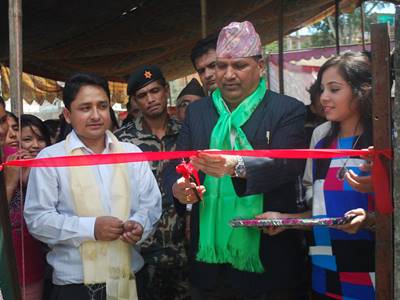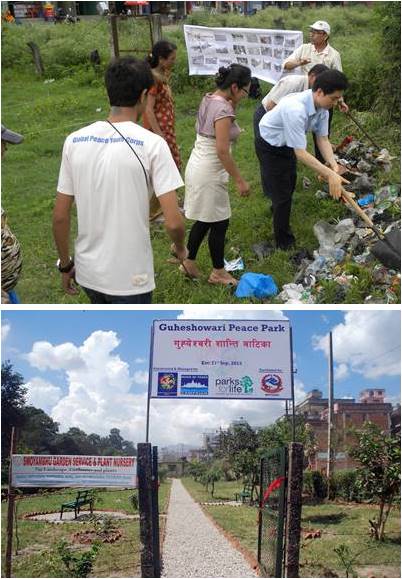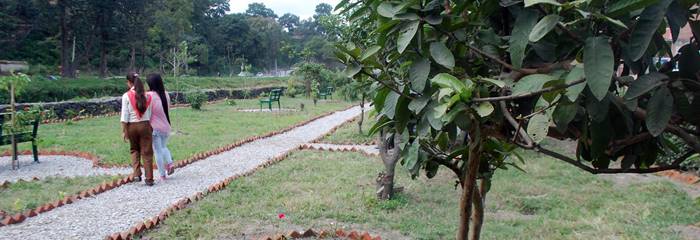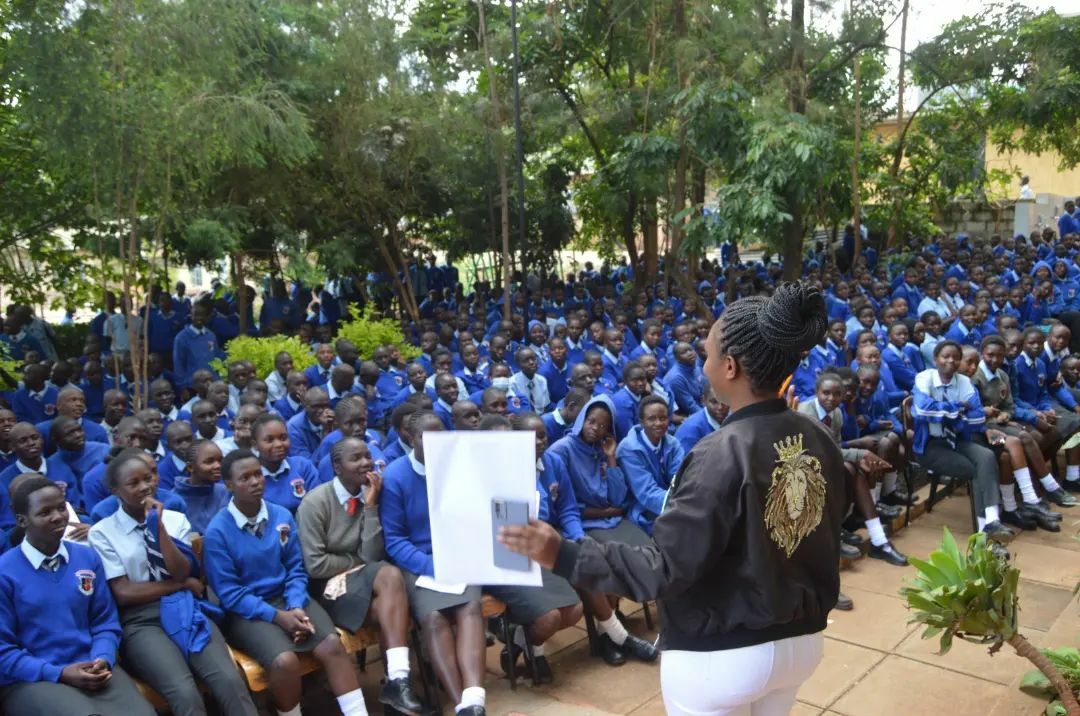
Hon. Chabi Raj Panta, Minister of Urban Development and the chief guest joins GPF Nepal President Er. Ram Rohan Panta (left) for the ceremony opening Guheshwori Peace Park.
Sometimes called “the roof of the world,” the Himalayan nation of Nepal is renowned for its dramatic mountain vistas and diverse ecosystems. But Nepal’s natural resources face growing threats from population growth, habitat destruction, residential and industrial pollution, and climate change.
The impact of human activity on the environment was the focus of the recently established Guheshwori Peace Park on the banks of the Bagmati River in Kathmandu Valley. Guheshwori Peace Park was established “with a hope that visitors feel at peace while experiencing the beauty of nature and realize how important it is to conserve the environment,” GPF Nepal President Er. Ram Rohan Panta told some 300 government and civil society leaders at a ceremony inaugurating the park. “Living for the greater good will bring prosperity to our nation and our vision, one family under God, will lead us to peace,” he added.

Above: Volunteers clean the future park grounds on the banks of the Bagmati River as part of the GPF Nepal’s Rivers of Peace Campaign. Below: Entrance to Guheswori Peace Park
The Guheswori Peace Park is a project of the River of Peace Campaign, an initiative of GPF Nepal for the rehabilitation of Bagmati River. The grounds of the park was formerly a dumping area for refuse but has been restored through the efforts of volunteers. The Peace Park is meant to serve as an inspiration and example of environmental stewardship. Accordingly, the High Powered Committee for Integrated Development of the Bagmati Civilization, a key GPF Nepal partner, has offered other lands on Bagmati River to any organization willing to maintain the grounds and upgrade the area for park development.
“It is the duty and responsibility of every Nepali to keep Nepal clean, and I’m glad that GPF Nepal motivates the public through its campaign.”
“We support and commend the work of Global Peace Foundation Nepal for peace and development,” said Hon. Chabi Raj Panta, Minister of Urban Development and the chief guest during the double celebration of International Peace Day and World Park Day 2013 on September 21. He called the initiative which GPF Nepal took to establish the peace park is “a great help for the beautification of Kathmandu.”
Guest speaker Dr. Govinda Tandon, Member Secretary of Pashupati Area Development Trust, declared, “We have to make our surroundings clean and green. The government is not the only one responsible for maintaining it. Now we have to change our attitude. We people have to take care of our cultural heritage.”
“It is the duty and responsibility of every Nepali to keep Nepal clean,” added Mrs. Finu Singh, Chairwoman of Humanistic Club and Chapter Advisory Council Member of Global Peace Women Nepal. “But we don’t do this, and I’m glad that GPF Nepal motivates the public through its campaign.”
The program was supported by the Ministry of Urban Development; High Powered Committee for Integrated Development of the Bagmati Civilization, Global Peace Youth Corps Nepal, Service for Peace Nepal, and other youth and environmental organizations.




